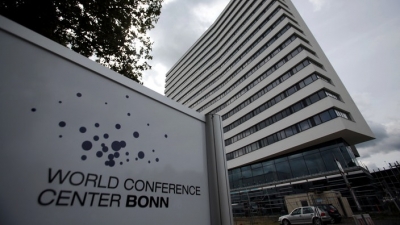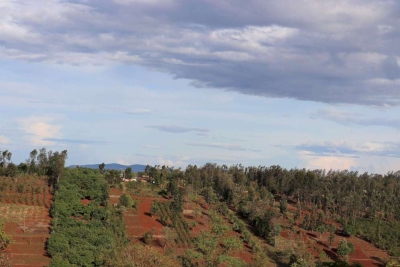
The Subsidiary Bodies (SBs) are an integral part of the Bonn Climate Change Conference. They consist of two bodies: the Subsidiary Body for Implementation (SBI) and the Subsidiary Body for Scientific and Technological Advice (SBSTA). These bodies support the work of the United Nations Framework Convention on Climate Change (UNFCCC).
The SBs take place every year, in many cases during the month of June, and they always happen at the World Conference Centre in Bonn, Germany. Whatever is passed during the Bonn conference, forms the agenda for the next Conference of Parties (COP), usually held between the months of November and December, and it rotates every year from one part of the world to another.
Here are five facts you need to know:
-
The SBs meet twice a year: during the Bonn Climate Change Conference and COP
They discuss and negotiate various aspects of climate change mitigation, adaptation, finance, capacity-building, technology transfer, and now, loss and damage. The meetings typically take place in June and November/December. The SBs work separately, but have joint agendas as they cooperate on cross-cutting issues within the areas of competence of both bodies.
-
The SBI focuses on the implementation of climate policies and actions
Its meetings include discussions on mitigation, adaptation, reporting and review processes, as well as on financial mechanisms and capacity-building initiatives. The SBI meeting plays a crucial role in enhancing transparency and accountability in the global climate change response.
-
The SBSTA provides scientific and technological advice for implementing the Paris Agreement and other climate policy processes
It assesses the latest scientific findings, technological advancements and transfer, as well as methodologies and guidelines relevant to climate change mitigation and adaptation. It also fosters inter-institutional collaboration in the field of research and systematic observation of the climate system.
-
The SBs play a vital role in preparing the agenda and decisions for the annual Conference of the Parties (COP)
COP is the highest decision-making body under the United Nations Framework Convention on Climate Change. The SBs provide technical expertise and recommendations that shape the negotiations and outcomes of COP. The SBs also inform the CMA (Conference of the Parties serving as the meeting of the Parties to the Paris Agreement) and the CMP (Conference of the Parties serving as the meeting of the Parties to the Kyoto Protocol). The CMA oversees the implementation of the Paris Agreement and takes decisions to promote its effective implementation, whereas the CMP does this for the Kyoto Protocol.
-
The Bonn Climate Change Conference serves as a platform to advance the global climate agenda
It is a meeting point for governments, civil society organizations, scientists, and other stakeholders to come together. The Conference provides opportunities for dialogue, knowledge sharing, capacity-building and consensus-building among parties involved in the UNFCCC process.











